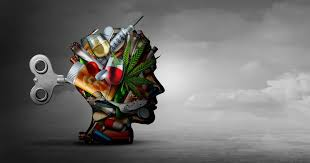Why Do You Crave Something Sweet After a Meal?
- Fysiobasen

- Nov 2, 2025
- 3 min read
Have you ever eaten to fullness, yet still felt an irresistible urge for something sweet afterward? You’re not alone. Post-meal sugar cravings are common, and although they’re often blamed on “willpower” or habit, there are real biological and psychological explanations. Understanding this phenomenon can help you manage your diet better, stabilize blood sugar, and make healthier choices in everyday life.

What Is a Sugar Craving — and When Does It Occur?
A sugar craving is a sudden and directed urge for foods containing sugar or fast carbohydrates — often chocolate, sweets, cookies, or sugary drinks. It may occur when you are hungry, but interestingly, it can also happen after a full-fledged meal.
That’s what confuses many people: why would the body demand more energy when it just had enough?
Benefits of Understanding Sugar Cravings
Gives better insight into bodily signals and regulation mechanisms
Helps reduce overeating and blood sugar crashes
Supports lifestyle changes and weight control
Helps reduce guilt and frustration linked to cravings
Limitations of Saying “Just Resist It”
Sugar cravings are not always a sign of weak willpower. Often, they are biologically rooted,
resulting from complex interactions among blood sugar, hormones, and the brain.
What Happens in the Body After a Meal?
After you eat — especially if the meal contains rapid carbohydrates — several things can unfold:
Blood Sugar Rises Quickly
This stimulates the pancreas to release insulin, a hormone that helps cells absorb glucose (sugar) from the bloodstream.
Insulin Lowers Blood Sugar
Sometimes it lowers it too much, especially after meals rich in high-glycemic foods (white bread, rice, pasta). This can lead to a relative blood sugar dip, which triggers the brain to send signals demanding more energy.
The Brain Interprets Low Blood Sugar as Hunger
The result? A sugar craving — a strong desire for something that can quickly raise blood sugar again.
Other Causes of Sugar Cravings After a Meal
Habit and Psychological Conditioning
If dessert always follows a meal, your brain learns to expect something sweet afterward. This becomes a conditioned reflex — like Pavlov’s dogs — activating the reward system
Inadequate Protein and Fiber
Meals low in protein and fiber provide poor satiety and digest quickly, making blood sugar drop faster — which triggers cravings.
Serotonin and Dopamine Effects
Carbohydrates boost serotonin production, a neurotransmitter associated with well-being and calm. Cravings may be your brain’s way of self-regulating mood, especially after stress.
Sleep Deficit and Stress
Lack of sleep or chronic stress increases ghrelin (the hunger hormone) and suppresses leptin (the satiety hormone), making you crave energy-dense, sugary foods.
Caffeine After Meals
In some people, caffeine can stimulate insulin release and lower blood sugar, triggering a craving. drkaitlinmartinello.ca
Is It Dangerous to Crave Sugar?
A craving in itself isn't dangerous, but it can lead to:
Increased sugar intake and excess calories
Weight gain over time
Unstable blood sugar and energy levels
Elevated risk of insulin resistance and type 2 diabetes with chronic overconsumption
What You Can Do to Reduce Sugar Cravings After Meals
Eat More Protein and Fiber
Fish, chicken, eggs, beans, and vegetables help provide stable energy and fullness.
Choose Complex Carbohydrates
Oats, whole grains, and legumes produce slower, steadier rises in blood sugar.
Never Eat Isolated Simple Carbs
Always combine sugary or starchy foods with fats or protein to moderate blood sugar spikes.
End the Meal with Fruit, Nuts, or Tea
These options can “reset the palate” and give your body a healthier transition after a meal.
Get Enough Sleep and Reduce Stress
Good sleep and stress management are key for hormonal balance and avoiding cravings.
Avoid Dessert as a Routine
Reserve sweets for special occasions — then they become more enjoyable and less expected.
Summary
Craving sweets after a meal is a common experience and has multiple explanations. It may be caused by rapid blood sugar fluctuations, habitual behavior, low protein or fiber intake, or emotional factors such as stress or lack of sleep. In most cases, it won’t harm you — but knowing what triggers the cravings helps you avoid overeating and maintain more stable energy and hunger signals in daily life.
Sources
Ludwig DS. The glycemic index: physiological mechanisms relating to obesity, diabetes, and cardiovascular disease. JAMA. 2002;287(18):2414–2423.
Birch LL, et al. Development of eating behaviors among children and adolescents. Pediatrics. 1998;101(3 Pt 2):539–549.
Benton D. Carbohydrate ingestion, blood glucose and mood. Neurosci Biobehav Rev. 2002;26(3):293–308.
Spiegel K, et al. Impact of sleep debt on metabolic and endocrine function. Lancet. 1999;354(9188):1435–1439.
Keijzers GB, et al. Caffeine can decrease insulin sensitivity in humans. Diabetes Care. 2002;25(2):364–369.
Nutritionist Resource. Why do we crave sugar after a meal? nutritionist-resource.org.uk
Verywell Health. 6 Reasons You Crave a Sweet Treat After Dinner Verywell Health
The Psychology of Food Cravings.* PMC *PMC









